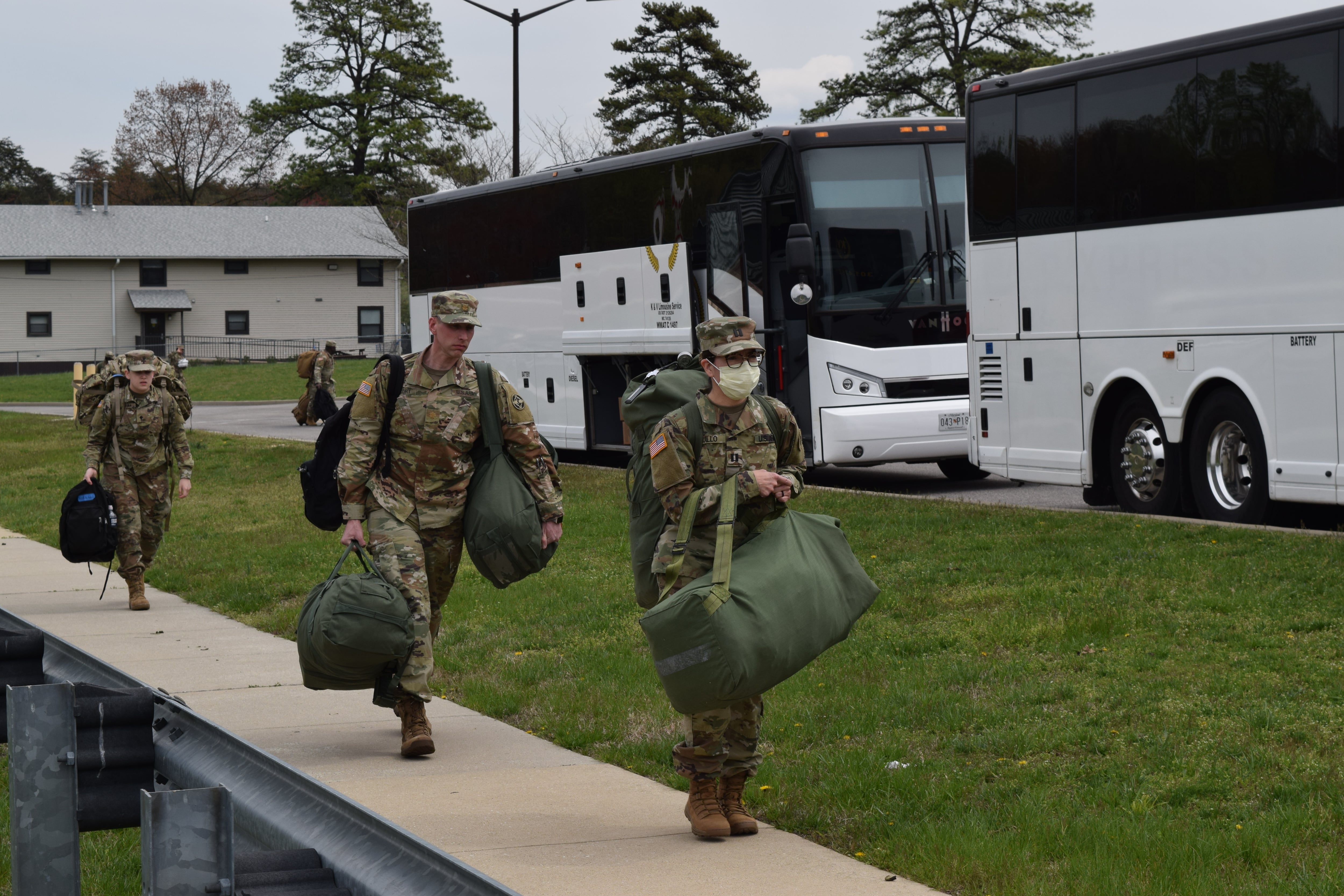Nine Army Reserve medical task forces totaling about 760 soldiers are mobilizing to support the federal response to the coronavirus pandemic in the northeastern and midwestern United States.
Four task forces will go to the Javits Center in New York City, one is augmenting Bennett Hospital in Stamford, Connecticut, and three will go to New Jersey at locations to be determined, according to Army headquarters.
A ninth task force is being sent to Detroit, Michigan, today, said U.S. Army North spokesman Capt. Jason Elmore. The Army Reserve established 15 of the medical task forces to assist the federal government and Federal Emergency Management Agency during the pandemic.
“We will continue to work closely with FEMA, state and local partners to determine the details of their support in Detroit,” Elmore said in an email. “Other locations are being planned across the country based on the operational need determined by the lead federal agency and state and local governments.”
New Jersey has reported more than 47,000 cases of COVID-19, New York has had nearly 150,000, Connecticut reported roughly 8,700 and Michigan has had more than 20,000 cases as of Friday afternoon, according to the Centers for Disease Control. Widespread community transmission is happening in all four states.
Soldiers on the newly dispatched task forces will also be able to care for COVID-19 patients, said Col. Mary Reed, Army Reserve Command Surgeon, in a statement.
One criticism of the U.S. military’s response to the pandemic has been the focus early on of only treating non-COVID-19 patients. That position was partially reversed last week, when the Pentagon announced that military personnel at the Javits Center in New York City, Morial Federal Medical Station in New Orleans and the Kay Bailey Hutchinson Federal Medical Station in Dallas will begin taking COVID-19 patients.
The soldiers sent with the Army Reserve task forces will be assisting FEMA and the Department of Health and Human Services at federal medical sites. The 85-soldier task forces will not perform surgeries or work on trauma patients, but each team can support 250 low-acuity patients.
The task forces do not come with equipment, medicines and intensive care unit capability, according to Army Reserve Command. However, they do include administrative staff, infectious disease and preventive medicine specialists, nurses, respiratory therapists and other medical subject matter experts.
The Army Reserve’s commanding general called the task forces “an entirely new type of unit” that has been assembled and prepared for deployment “in less than two weeks.”
“We moved at the speed of heat and it’s as awesome as it is amazing,” Lt. Gen. Charles D. Luckey said in a statement. "We’d expected a different fight, in a different place, against a different foe...but this is the fight we’re in and we’re here to win it.”
Kyle Rempfer was an editor and reporter who has covered combat operations, criminal cases, foreign military assistance and training accidents. Before entering journalism, Kyle served in U.S. Air Force Special Tactics and deployed in 2014 to Paktika Province, Afghanistan, and Baghdad, Iraq.




